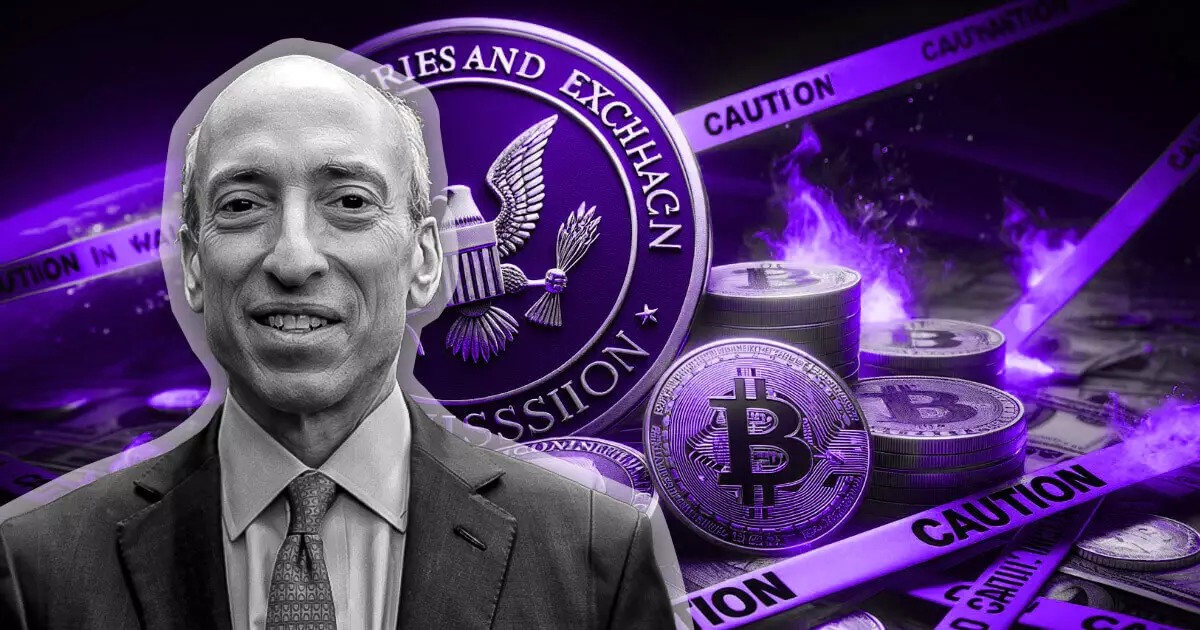The ongoing conversation surrounding cryptocurrencies often centers on regulatory frameworks that aim to provide a clear view of how these digital assets fit within traditional financial laws. A recent commentary by the U.S. Securities and Exchange Commission (SEC) Chair, Gary Gensler, has significant implications for the cryptocurrency market, particularly concerning Bitcoin. Gensler emphasized during a CNBC interview that Bitcoin is distinctly categorized as a commodity rather than a security under U.S. law. This classification is crucial for the cryptocurrency’s future and provides a much-needed layer of regulatory clarification for investors.
Gensler’s assertion that Bitcoin is not a security aligns with the SEC’s prior actions, including their recent approval of several spot Bitcoin exchange-traded funds (ETFs). This move signifies a significant acknowledgment that Bitcoin holds a different status compared to many other cryptocurrencies, reinforcing its position within established trading platforms like Nasdaq. This differentiation has bolstered Bitcoin’s credibility in the eyes of both retail and institutional investors, providing a framework within which they can operate confidently.
However, Gensler did not shy away from criticizing the broader cryptocurrency landscape. He pointed out that many participants neglect existing regulatory guidelines, opting instead for non-compliance. This approach not only invites instability but also contributes to a more significant atmosphere of uncertainty within the crypto world. Gensler’s frustration reflects a sentiment shared by many regulatory officials concerned about the industry’s apparent disregard for established financial rules.
In stark contrast to Bitcoin, the regulatory status of Ethereum remains murky. Unlike Bitcoin, which has a designated classification, Ethereum’s position is less defined, leaving many stakeholders in limbo. The SEC has not definitively categorized Ethereum as either a security or a commodity, creating confusion surrounding the regulatory expectations for companies operating within the Ethereum ecosystem. The implications of this classification are broad, affecting everything from compliance to the ability of projects to secure funding.
Even as Ethereum-based ETFs gained approval, the SEC has concurrently launched investigations into prominent entities such as Consensys and Uniswap. This dual approach has raised eyebrows among lawmakers and industry professionals alike, with concerns that the SEC’s regulatory stance may stifle innovation rather than encourage healthy market growth.
The lack of clarity has drawn criticism from various members of Congress who argue that the SEC’s actions and terminologies, such as “crypto asset security,” only contribute to the confusion plaguing the industry. This legislative discontent highlights the urgent need for clearer guidelines that do not inhibit innovation but promote a more robust market ecosystem.
Gensler, however, remains steadfast in his belief that establishing a solid regulatory foundation is vital for the future of the cryptocurrency industry. He likened the evolution of cryptocurrencies to the introduction of traffic regulations necessary for safe driving, underscoring that investor trust is paramount for long-term success in the financial markets.
As the SEC continues to grapple with regulatory frameworks for the burgeoning crypto sector, the contrast between Bitcoin’s definitive classification and Ethereum’s uncertain status lays bare a broader narrative of clarity versus chaos in cryptocurrency regulations. The path forward will likely require cooperation from regulatory entities and the crypto community to foster an environment conducive to innovation and growth.


Leave a Reply